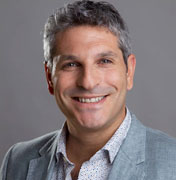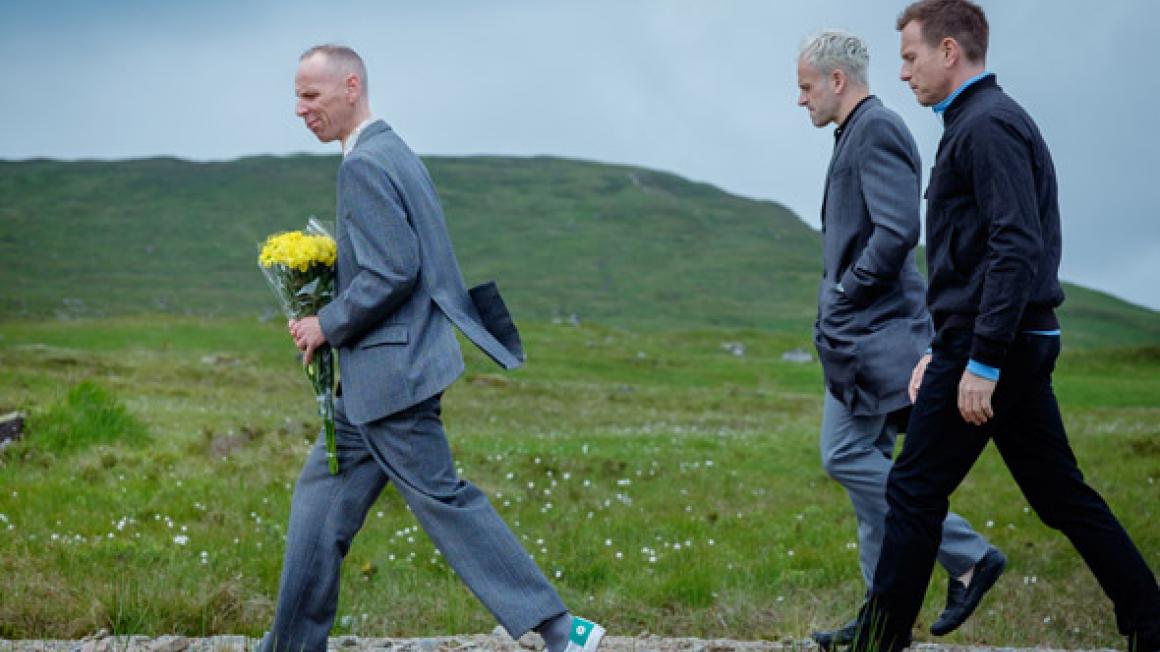T2 Trainspotting
How do you follow a cult success that defined the zeitgeist for a generation of film lovers, music fans and even drug users?
Such is the legacy of Danny Boyle’s Trainspotting and the pressure of expectation, that getting the ‘band’ back together has taken 20 years. However, a lot has happened in 20 years, on screen and off and the original film’s ironic yet uplifting mantra Choose Life has now mutated into a brutally blunt: ‘Choose Disappointment’.
Plot-wise, lead character Mark Renton, played once again by a still-boyish Ewan McGregor, returns to Edinburgh to make amends for running off with his friends’ dosh at the end of the first movie. He revisits Jonny Lee Miller’s Simon (Sickboy) who’s running a blackmail racket and hopes to open a sauna, and repeat addict Spud (Ewen Bremner), who still lives in a hovel of a flat. Meanwhile, Robert Carlyle’s still-menacing Begbie is fresh out of jail (well, he escapes) and after revenge.

With all the nostalgia and reunion on screen, you’d have thought there might be some excitement. But recapturing their youth inspires little other than regrets. Here are four characters who were losers when we left them in 1996 and who haven’t made any strides forward.
Middle-age stasis and a fear of mortality creep all over this film, which is a bit odd considering everyone involved 20 years ago did rather well out of it – couldn’t they, then, have found maybe one character who isn’t a total failure?
Trainspotting may have been bleak, but it had youthful energy and, crucially, some slivers of hope to act as a salve. Scripted again by John Hodge, this film has a bitter strain of often funny humour but channels it more into great gulps of resentment.
‘It’s not a mess,’ says someone, ‘it’s just masculine,’ and you can feel the drug-ruined testosterone pulsing through the characters: at one point, begbie even necks a packet of Viagra in order to restore feeling.
There are some bravura Boyle moments, such as when Sickboy’s apartment turns into a football stadium, or Spud’s cold turkey finds Bremner (the best performer of the lot) silhouetted like Nosferatu on the peeling wall of his flat. Or when Renton finds himself re-enacting his iconic dash through the Edinburgh streets to end up on another car bonnet.
But there are so many shots and angles here – Boyle can’t resist forcing his lens into every corner of the set, tilting and wobbling like a drunk down the Lothian road. I wish he’d found a new shooting style to match the new mood. But while the first film somehow captured and shaped the mid-90s zeitgeist of Brit-Pop and dance culture, New Labour and a new wave of British cinema, you can’t help feeling that T2 misses any such opportunity, particularly as it was shooting during the brexit vote and now appears with Trump marching into the White House.
T2 isn’t a bad film at all. In places, it’s terrific, but it too often drags in a pool of its own despond, a melancholy movie that looks a bit embarrassed to be so, the cinematic equivalent of Dad Dancing.
And what of that soundtrack, which produced two must-have albums 20 years ago? It can’t match its predecessor’s, although there is clever mash-up work at play, with teasing refrains and chords of Lou Reed and Underworld throughout, alongside blasts of Blondie. But the remixes of Queen’s Radio Gaga and less iconic new stuff from indie bands such as Wolf Alice feel a bit 6 Music-y – not right for what these characters would be listening to.
True, the storyline of Spud does eventually hint at forward momentum in T2 (even that new title feels a bit ‘naff’), it nevertheless feels trite to observe that T2 Trainspotting is a more mature film than its junior self. Of course it is: the problem is, it doesn’t feel wiser, just wearier. But maybe then again, don’t we all?


